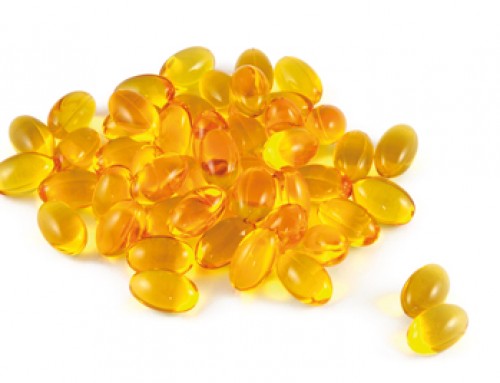MINERALI V PREHRANI
Minerali so kemični elementi, ki jih organizmi potrebujejo kot esencialno hranilo za opravljanje funkcij, potrebnih za življenje. Telo jih potrebuje v majhnih količinah za različne funkcije. Minerali sodelujejo pri tvorbi kosti in zob; so bistvene sestavine telesnih tekočin in tkiv; so sestavni deli encimskih sistemov in sodelujejo pri normalnem delovanju živcev.
POTASSIUM (K)
Main function(s): It is the most important intercellular element in all cell types because it is crucial for their normal function. A systemic electrolyte and is essential in coregulating ATP with sodium.
Allowed health claims (EFSA): Potassium
– contributes to normal functioning of the nervous system
– contributes to normal muscle function
– contributes to the maintenance of normal blood pressure
Food sources: Sweet potato, tomato, potato, beans, lentils, dairy products, seafood, banana, prune, carrot, and orange.
Recommended daily allowance (adults): 2000 mg
CALCIUM (Ca)
Main function(s): Needed for muscle, heart and digestive system health, builds bone, supports synthesis and function of blood cells.
Allowed health claims (EFSA): Calcium
– contributes to normal blood clotting
– contributes to normal energy-yielding metabolism
– contributes to normal muscle function
– contributes to normal neurotransmission
– contributes to the normal function of digestive enzymes
– has a role in the process of cell division and specialization
– is needed for the maintenance of normal bones
– is needed for the maintenance of normal teeth
Food sources: Dairy products, eggs, canned fish with bones (salmon, sardines), green leafy vegetables, nuts, seeds, tofu, thyme, oregano, dill, and cinnamon.
Recommended daily allowance (adults): 800 mg

CHLORIDE (Cl-)
Main function(s): Needed for production of hydrochloric acid in the stomach and in cellular pump functions.
Allowed health claims (EFSA): Chloride
– contributes to normal digestion by production of hydrochloric acid in the stomach
Food sources: Table salt (sodium chloride) is the main dietary source.
Recommended daily allowance (adults): 800 mg
FLUORIDE (F-)
Main function(s): The mineralisation of bones and teeth.
Allowed health claims (EFSA): Fluoride
– supports the mineralisation of bones.
– contributes to the maintenance of tooth mineralisation
Food sources: Fluoride is found in fluoridated water, tea and fish.
Recommended daily allowance (adults): 3,5 mg
PHOSPHORUS (P)
Main function(s): A component of bones (apatite), cells, in energy processing, in DNA and ATP (as phosphate) and many other functions.
Allowed health claims (EFSA): Phosphorus
– contributes to normal energy-yielding metabolism
– contributes to normal function of cell membranes
– contributes to the maintenance of normal bones
– contributes to the maintenance of normal teeth
– is needed for the normal growth and development of bone in children
Food sources: Red meat, dairy foods, fish, poultry, bread, rice, and oats. In biological contexts, usually seen as phosphate.
Recommended daily allowance (adults): 700 mg
IODINE (I)
Main function(s): Required for synthesis of thyroid hormones, thyroxine and triiodothyronine and to prevent goiter.
Allowed health claims (EFSA): Iodine
– contributes to normal cognitive function
– contributes to normal energy-yielding metabolism
– contributes to normal functioning of the nervous system
– contributes to the maintenance of normal skin
– contributes to the normal production of thyroid hormones and normal thyroid function
– contributes to the normal growth of children
Food sources: Seaweed (kelp or kombu), grains, eggs, and iodized salt.
Recommended daily allowance (adults): 150 µg
SELENIUM (Se)
Main function(s): Essential to activity of antioxidant enzymes like glutathione peroxidase.
Allowed health claims (EFSA): Selenium
– contributes to normal spermatogenesis
– contributes to the maintenance of normal hair
– contributes to the maintenance of normal nails
– contributes to the normal function of the immune system
– contributes to the normal thyroid function
– contributes to the protection of cells from oxidative stress
Food sources: Brazil nuts, seafoods, organ meats, meats, grains, dairy products, and eggs.
Recommended daily allowance (adults): 55 µg
MAGNESIUM (Mg)
Main function(s): Required for processing ATP and for the bones.
Allowed health claims (EFSA): Magnesium
– contributes to a reduction of tiredness and fatigue
– contributes to electrolyte balance
– contributes to normal energy-yielding metabolism
– contributes to normal functioning of the nervous system
– contributes to normal muscle function
– contributes to normal protein synthesis
– contributes to normal psychological function
– contributes to the maintenance of normal bones
– contributes to the maintenance of normal teeth
– has a role in the process of cell division
Food sources: Spinach, legumes, nuts, seeds, whole grains, peanut butter, and avocado.
Recommended daily allowance (adults): 375 mg
IRON (Fe)
Main function(s): Required for many proteins and enzymes, notably hemoglobin to prevent anemia.
Allowed health claims (EFSA): Iron
– contributes to normal cognitive function
– contributes to normal energy-yielding metabolism
– contributes to normal formation of red blood cells and haemoglobin
– contributes to normal oxygen transport in the body
– contributes to the normal function of the immune system
– contributes to the reduction of tiredness and fatigue
– has a role in the process of cell division
– contributes to normal cognitive development of children
Food sources: Meat, seafood, nuts, beans, and dark chocolate.
Recommended daily allowance (adults): 14 mg
ZINC (Zn)
Main function(s): Pervasive and required for several enzymes such as carboxypeptidase, liver alcohol dehydrogenase, and carbonic anhydrase.
Allowed health claims (EFSA): Zinc
– contributes to normal DNA synthesis
– contributes to normal acid-base metabolism
– contributes to normal carbohydrate metabolism
– contributes to normal cognitive function
– contributes to normal fertility and reproduction
– contributes to normal macronutrient metabolism
– contributes to normal metabolism of fatty acids
– contributes to normal metabolism of vitamin A
– contributes to normal protein synthesis
– contributes to the maintenance of normal bones
– contributes to the maintenance of normal hair
– contributes to the maintenance of normal nails
– contributes to the maintenance of normal skin
– contributes to the maintenance of normal testosterone levels in the blood
– contributes to the maintenance of normal vision
– contributes to the normal function of the immune system
– contributes to the protection of cells from oxidative stress
– has a role in the process of cell division
Food sources: Oysters, red meat, poultry, nuts, whole grains, and dairy products.
Recommended daily allowance (adults): 10 mg
SODIUM (Na)
Main function(s): A systemic electrolyte and is essential in coregulating ATP with potassium.
Food sources: Table salt (sodium chloride; the main source), sea vegetables, milk, and spinach.
MANGANESE (Mn)
Main function(s): A cofactor in enzyme functions
Allowed health claims (EFSA): Manganese
– contributes to normal energy-yielding metabolism
– contributes to the maintenance of normal bones
– contributes to the normal formation of connective tissue
– contributes to the protection of cells from oxidative stress
Food sources: Grains, legumes, seeds, nuts, leafy vegetables, tea, and coffee.
Recommended daily allowance (adults): 2 mg
COPPER (Cu)
Main function(s): Required component of many redox enzymes, including cytochrome C oxidase.
Allowed health claims (EFSA): Copper
– contributes to maintenance of normal connective tissues
– contributes to normal energy-yielding metabolism
– contributes to normal functioning of the nervous system
– contributes to normal hair pigmentation
– contributes to normal iron transport in the body
– contributes to normal skin pigmentation
– contributes to the normal function of the immune system
– contributes to the protection of cells from oxidative stress
Food sources: Liver, seafood, oysters, nuts, seeds; some: whole grains, and legumes.
Recommended daily allowance (adults): 1 mg
CHROMIUM (Cr)
Main function(s): Involved in glucose and lipid metabolism, although its mechanisms of action in the body and the amounts needed for optimal health are not well-defined.
Allowed health claims (EFSA): Chromium
– contributes to normal macronutrient metabolism
– contributes to the maintenance of normal blood glucose levels
Food sources: Broccoli, grape juice (especially red), meat, and whole grain products.
Recommended daily allowance (adults): 40 µg
MOLYBDENUM (Mo)
Main function(s): The oxidases xanthine oxidase, aldehyde oxidase, and sulfite oxidase.
Allowed health claims (EFSA): Molybdenum
– contributes to normal sulphur amino acid metabolism
Food sources: Legumes, whole grains, and nuts.
Recommended daily allowance (adults): 50 µg
COBALT (Co)
Required in the synthesis of vitamin B12, but because bacteria are required to synthesize the vitamin, it is usually considered part of vitamin B12 which comes from eating animals and animal-sourced foods (eggs…).
What are trace elements?
Trace elements are essential nutrients that body needs to work properly, but in much smaller amounts than most vitamins and minerals. Most known trace elements are iodine and fluorine. Trace elements are found in small amounts in a variety of foods such as meat, fish, cereals, milk and dairy foods, vegetables and nuts.
Herbana company offers high quality natural and organic products with all required analysis and known origin. All certified by modern internationally recognized ECOGEA standard.





